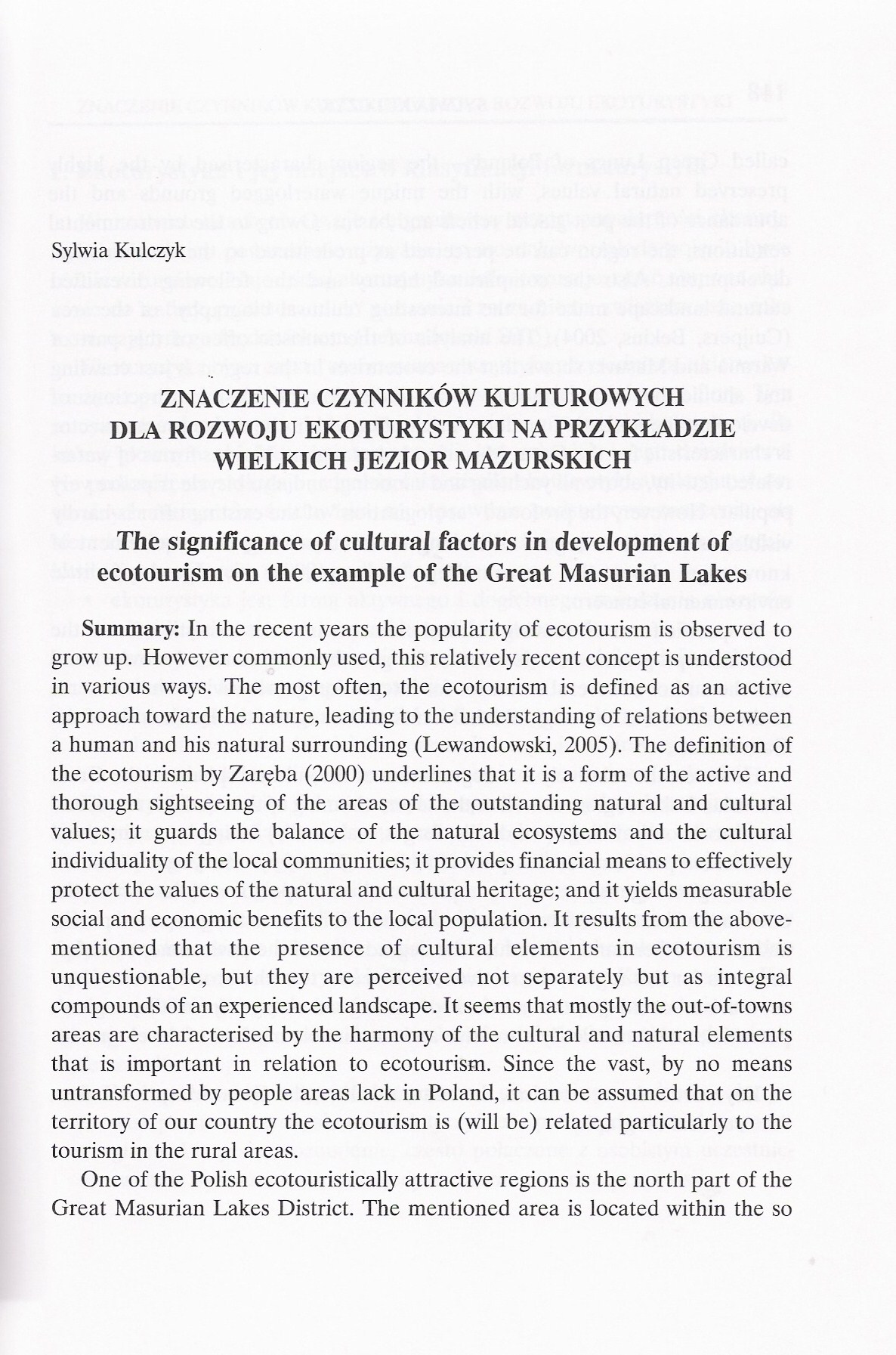39137 skanuj0029 (109)

Sylwia Kulczyk
ZNACZENIE CZYNNIKÓW KULTUROWYCH DLA ROZWOJU EKOTURYSTYKI NA PRZYKŁADZIE WIELKICH JEZIOR MAZURSKICH
The significance of cultural factors in deveIopment of ecotourism on the example of the Great Masurian Lakes
Summary: In the recent years the popularity of ecotourism is observed to grow up. However commonly used, this relatively recent concept is understood in various ways. The most often, the ecotourism is defined as an active approach toward the naturę, leading to the understanding of relations between a human and his natural surrounding (Lewandowski, 2005). The definition of the ecotourism by Zaręba (2000) underlines that it is a form of the active and thorough sightseeing of the areas of the outstanding natural and cultural values; it guards the balance of the natural ecosystems and the cultural individuality of the local communities; it provides financial means to effectively protect the values of the natural and cultural heritage; and it yields measurable social and economic benefits to the local population. It results from the above-mentioned that the presence of cultural elements in ecotourism is unąuestionable, but they are perceived not separately but as integral compounds of an experienced landscape. It seems that mostly the out-of-towns areas are characterised by the harmony of the cultural and natural elements that is important in relation to ecotourism. Since the vast, by no means untransformed by people areas lack in Poland, it can be assumed that on the territory of our country the ecotourism is (will be) related particularly to the tourism in the rural areas.
One of the Polish ecotouristically attractive regions is the north part of the Great Masurian Lakes District. The mentioned area is located within the so
Wyszukiwarka
Podobne podstrony:
skanuj0031 (88) 149 ZNACZENIE CZYNNIKÓW KULTUROWYCH DLA ROZWOJU EKOTURYSTYKI1. Ekoturystyka i jej mi
skanuj0035 (73) 153 ZNACZENIE CZYNNIKÓW KULTUROWYCH DLA ROZWOJU EKOTURYSTYKI2. Atrakcyjność elementó
84109 skanuj0040 (63) 159 ZNACZENIE CZYNNIKÓW KULTUROWYCH DLA ROZWOJU EKOTURYSTYKI Literatura Cuijpe
skanuj0038 157 ZNACZENIE CZYNNIKÓW KULTUROWYCH DLA ROZWOJU EKOTURYSTYKI Specyficzną formą wplecenia
skanuj0037 (70) 155 ZNACZENIE CZYNNIKÓW KULTUROWYCH DLA ROZWOJU
47089 skanuj0033 (69) ZNACZENIE CZYNNIKÓW KULTUROWYCH DLA ROZWOJU EKOTURYSTYKI 151 W ostatnich latac
Maśliński4972 czynnikiem wzrostu dla pewnych nowotworów. Na przykład podejrzewa się, że U>] może
więcej podobnych podstron